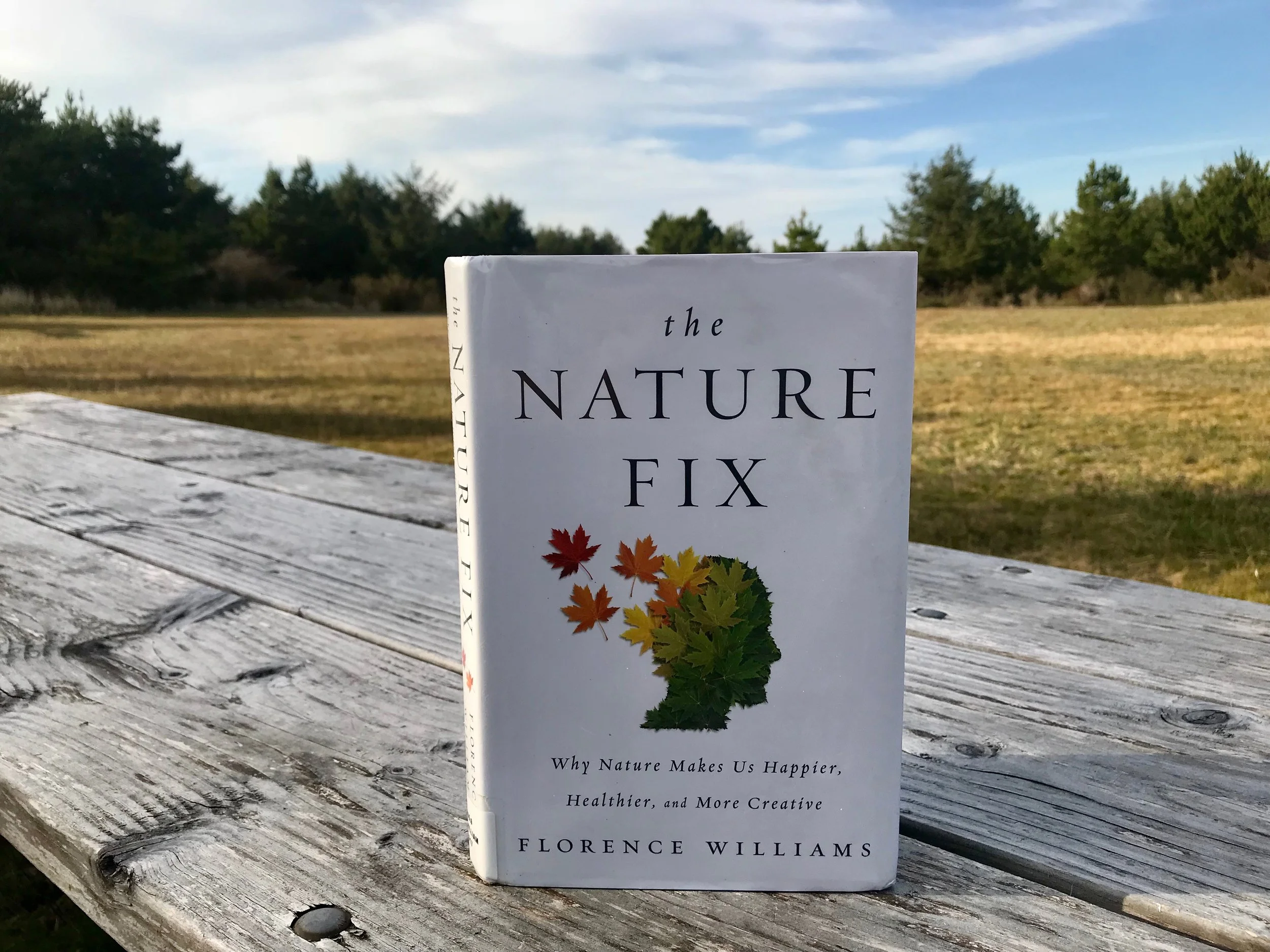Florence William’s Book Explores the Science of the Nature-Human Connection
By Kara Patajo
As a college student who attends university in the big city of Seattle, lives in the suburbs, and escapes to green spaces as often as I can, the close connections between spending time outdoors and my well-being are almost as clear as to be tangible.
Hiking at Mt. Rainier National Park, kayaking on Puget Sound, or even walking my dog in city parks all do more than expose me to natural beauty; they have restorative benefits that help me to calm my anxiety, think more clearly, and remind me of the value of life in all its forms. While exercise and the physical benefits associated with it may be the most well-known benefit of spending time in nature, the mental and emotional benefits are saleint to me. In fact, I wrote a year-long column for my college newspaper about the links between nature and our wellbeing.
But, you may have yet to experience the less-easily measurable or more seemingly amorphous benefits of nature to human health. Or, if you would simply like to understand the scientific research of these then look no further than The Nature Fix by Florence Williams.
Spanning just over 250 pages, the book is a heavier read than one might think. This is a book that is tailored for readers who are interested in research studies, data, and (of course) nature. That being said, Williams provides a little something for everyone. She interweaves scientific research of nature’s benefits on human health with her own personal narratives of nature, from residing in big noisy cities to the mountainside of Colorado.
To tackle the large concept of how nature interacts with our brains the book begins with two major theories, the biophilia hypothesis and the theories related to attention restoration. In essence, the first theory rests on mankind’s long history of living in the outdoors. It sees our emotional connections to other life, like plants and wildlife, as a development in our evolution. Then, the attention restoration theories view the human-nature relationship as one in which our brains receive some sort of healing benefits from nature, like improved clarity of thought for example.
The book is global in scope, and includes research from countries as diverse as the United States, Japan, and Finland, allowing for insightful comparisons of different cultural views of and relationships with nature. To narrow in on how specific “doses” of nature affects the brain, the book spends much time diving deep into how spending different durations of time in natural environments impacts people.
On the whole, Williams’ book does an excellent job of combining scientific data with anecdotes from her own life and that of the nature-intrigued scientists she interviews. While I
appreciate the value of both Williams’ efforts and that of the scientists to try to pinpoint exactly how our brains are affected by time spent in green areas, I preferred the anecdotal portions of the book. In part, I find Williams’ stories credible because has experienced urban life in New York and Washington D.C. and has sought out escapes in the outdoors on trails, parks, and kayaks. One story I found particularly telling is when Williams writes often about how disruptive the constant sounds of airplanes flying overhead in D.C. are to one (like herself) who is attuned to the stillness of mountain life. To her delight, one day a blizzard shuts down all air traffic and the sense of peace that ensues is not just because of the lack of airplane noise but also because of the quality time with family and neighbors that occurred during this time. In this case, nature came to her city in a sense and brought with it some of the restorative benefits that the science speaks of.
At times beauty, or even natural beauty, can seem like amorphous concepts. Williams’ book helps to distill what precisely it is that makes the experience of nature’s beauty so valuable to human beings. So, whether you regularly seek out time in nature, are interested in the scientific research of the nature-human connection, or are simply looking for a new book to read as we enter spring The Nature Fix is a refreshing choice that just may lead you to seek out more natural beauty.




